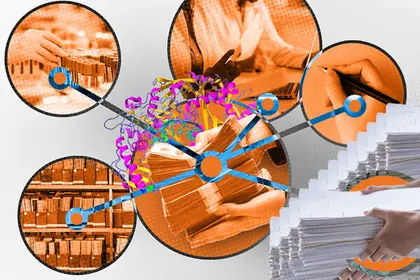T4K3.news
Fraud networks threaten trust in science
A study finds organized groups of editors promote fake research, risking credibility and delaying medical progress.

Experts warn that organized fraud rings infiltrate journals to promote fake research, undermining credibility and delaying medical progress.
Fraud networks threaten trust in science
Experts analyzing millions of papers say organized networks are infiltrating journals to publish fake science. A recent study in the Proceedings of the National Academy of Sciences analyzed more than 5 million articles across about 70 000 journals. It found networks of editors who frequently publish articles flagged for integrity issues and brokers who connect fraudulent authors to these editors. The study shows this scheme can operate at scale and sometimes bypass traditional peer review.
Fraudulent research harms progress by biasing meta analyses, delaying treatments, and wasting funding. Retracting papers helps, but the damage often happens before a correction. Publishers are pursuing new detection methods, and some groups have issued large retractions, yet experts say deeper changes to how science is evaluated are needed. The paper highlights that the broader system still rewards publication counts, not necessarily meaningful discovery, making fraud more tempting.
Key Takeaways
"Trust in science must be earned through integrity."
Editorial emphasis on core value guiding science
"One fake study wastes years of work."
Illustrates the cost of fraud on research timelines
"Integrity over numbers should guide science policy."
Policy implication from the analysis
"Science survives on verification not impression."
Principle for handling scientific publishing
The report exposes a structural flaw in academia: the push to publish more, win grants, and rise through ranks often outweighs the need for rigorous verification. When careers hinge on numbers, some may cut corners or rely on questionable networks. AI-enabled misrepresentation adds another layer of risk, expanding the reach of fraudulent work. A real fix, the researchers argue, requires culture change and new metrics that value quality and reproducibility over raw output.
What follows is a call for policy and editorial reforms: strengthen independence in editorial decisions, increase transparency around data and methods, and move away from counting papers and citations as the main measure of success. The path is not easy, but the alternative is continued erosion of public trust in science and slower progress on health challenges.
Highlights
- Trust in science must be earned through integrity
- One fake study wastes years of work
- Integrity over numbers should guide science policy
- Science survives on verification not impression
Fraud risks threaten science funding and public trust
A study shows organized networks of editors promoting fake research, risking credibility and delaying medical advances. The issue touches funding, policy, and public health decisions.
A lasting fix will depend on shared standards and real accountability.
Enjoyed this? Let your friends know!
Related News

Study reveals alarming rise in scientific fraud

Study Reveals Organized Scientific Fraud

Scientific publishing under pressure
Documentary Investigates Iconic Vietnam Photo Controversy

COVID conspiracy theories jeopardize pandemic prevention

False nuclear warning hits Moscow buses

Analysis of tactics used by romance fraudsters

Marcus Lemonis Returns to TV with New Show
